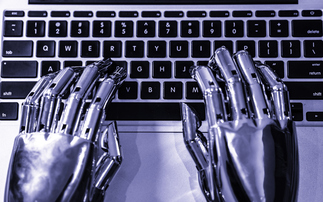Deloitte research suggests fears of robot revolution making humanity redundunt are unfounded
Fears that robots and other automated machines will replace jobs and create a world devoid of work are unfounded, according to a study by Deloitte economists. The report, entitled Technology and...
To continue reading this article...
Join Computing
- Unlimited access to real-time news, analysis and opinion from the technology industry
- Receive important and breaking news in our daily newsletter
- Be the first to hear about our events and awards programmes
- Join live member only interviews with IT leaders at the ‘IT Lounge’; your chance to ask your burning tech questions and have them answered
- Access to the Computing Delta hub providing market intelligence and research
- Receive our members-only newsletter with exclusive opinion pieces from senior IT Leaders






















